Indispensable Man
On August 16, 1948, the cover of Time magazine featured a portrait of David Ben-Gurion, the prime minister of Israel, who had declared the establishment of the state only three months earlier. The lead article began with these words: “The Jews beat the Arabs.” This simple declarative statement, highlighted in a pull quote, betrayed wonder at the fact that the Jews, who hadn’t won a battle in two thousand years, and who had just endured the worst catastrophe in their history, had succeeded in overcoming their Arab adversaries.
Such wonder, shared by many throughout the world, finds no echo in Tom Segev’s long, deeply researched, and challenging biography of David Ben-Gurion. What contemporaries perceived as a miracle, something they had never dreamed would happen in their lifetimes, was not, according to Segev, a particularly thrilling event. Already in his book’s title—A State at Any Cost—the price paid for the establishment of the state eclipses the magnitude of the achievement.
While Segev acknowledges Ben-Gurion’s central role in Israel’s victory in the War of Independence, he goes to great lengths to highlight the extent to which Ben-Gurion was also to blame for missteps that took place during the course of the war. “It may well be that the high number of casualties on the Israeli side was due to Ben-Gurion’s failure to establish an army earlier, and on his insistence on conducting the war largely by himself.” This comes close to historical libel. Ben-Gurion could not build a real army as long as the British ruled the land, but he did initiate the large-scale acquisition of war materiel, one of the main factors that led to victory.
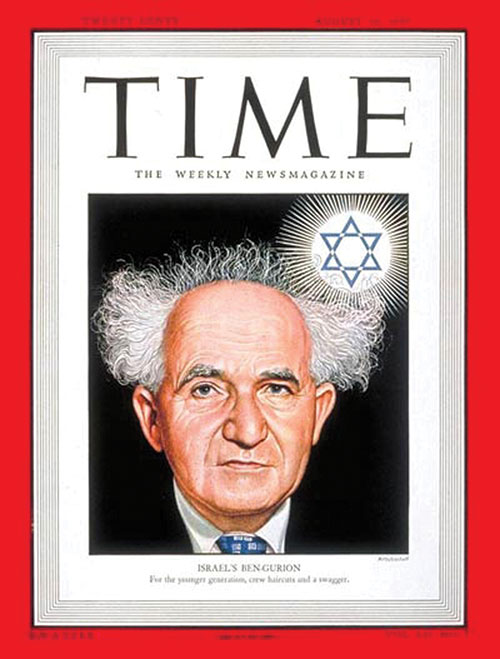
Although he had been near or at the apex of Zionist leadership since the early 1930s, Ben-Gurion did not become deeply involved in military matters until he invented and conferred upon himself the defense portfolio at the 1946 Zionist Congress and proceeded to undertake his much-discussed military seminar. Segev relates in some detail what Ben-Gurion noted in the course of his in-depth study of defense, which was based on meetings with commanders and the review of inventories. Ben-Gurion understood that the Haganah had to be transformed from a militia into an army. This conceptual shift led to many clashes with the Haganah commanders. There were times when the commanders were right, and there were times when Ben-Gurion was right. Anyone who reads about Churchill’s fights with his chiefs of staff and the professional officers’ complaints about Churchill’s lack of strategic understanding will understand that Ben-Gurion’s conflicts with his staff were not unique. In the end, these disagreements yielded the compromises that made it possible to win the War of Independence.
The only battle in which Ben-Gurion was personally involved was the one for the strategic hilltop of Latrun on the road from Tel Aviv to Jerusalem. He debated with Yigael Yadin, the acting chief of staff, over the question of whether Jerusalem could survive the siege of the city without opening the road at Latrun. Yadin thought that it could; Ben-Gurion feared that it couldn’t. This was a legitimate debate. Yitzhak Rabin, for instance, believed that Ben-Gurion was correct; others disagreed. In all the battles at Latrun (there were six), 168 men fell—not hundreds, as Segev writes. In every other engagement, Ben-Gurion ultimately accepted his officers’ recommendations. The idea that he was responsible for unnecessary Israeli losses out of a combination of megalomania and strategic failure is unconvincing.
Segev’s argument that victory obscured Ben-Gurion’s failures as leader of the defense establishment ignores the fact that every leader of a triumphant army wears the halo of success, even if he made mistakes along the way (and all leaders do). Leadership in a life-and-death struggle, such as Israel’s War of Independence, is a crucial element of victory. Great Britain without Churchill would not have held on through World War II; Israel without Ben-Gurion, for all his faults, wouldn’t have made it either. Israel Galili, the head of the national command—Ben-Gurion would relieve him of that position in the middle of the war, provoking a revolt of the generals against the prime minister—deeply admired Ben-Gurion and saw him as the one man who, in the case of defeat, would be able to prevent mass flight. Segev, for his part, places responsibility for every failure on Ben-Gurion’s shoulders while refusing to give him credit for any victories.
Nonetheless, Segev does take note of the fact that the citizens of the new state did not blame Ben-Gurion for the loss of so many young people in battle, especially during the early, difficult stages of the war. Many of the dead were children of the leaders of the Yishuv, Ben-Gurion’s friends, and he felt their pain, fearing the day that they would cast blame on him. Segev mentions a book of poems composed by one of the bereaved fathers, which included a dedication to Ben-Gurion: “At your order he fought, at your order he fell, may your name be blessed.” Ben-Gurion sobbed when he read it.
According to Segev, Ben-Gurion’s flaws as a military leader were on display long before the War of Independence. Segev strives mightily and frequently to place responsibility for the Haganah on Ben-Gurion’s shoulders—mostly so he can argue that the failures in the defense of the Yishuv during the 1929 disturbances and the Arab rebellion (1936–1939) were Ben-Gurion’s fault and that he sought to evade responsibility for them. He tells us, for instance, that three months before the outbreak of violence in 1929, the national coordinator of the Haganah told Ben-Gurion “that even existing weapons were not being cared for properly.” Ben-Gurion wasn’t interested, Segev says. He was, at the time, the secretary of the Histadrut labor organization and, as such, “bore responsibility for the fiasco of the Haganah’s lack of preparedness” when trouble began, a responsibility he allegedly shirked. In fact, the man who stood at the head of the Haganah was Eliyahu Golomb, and its unofficial leader was Berl Katznelson. Ben-Gurion had nothing to say about matters pertaining to defense until he became the chairman of the Zionist Executive in 1935. Even then, he lacked operational authority, which remained in the hands of various institutions in the Yishuv. The chairman of the Jewish Agency Executive had veto power over the activities of the Haganah, but not much more than that.
The truth is that the Haganah was not a key Zionist institution at the time, as can be seen from the size of its budget. Even after the 1929 disturbances, which revealed the weaknesses of the Haganah, funds were not allotted to defense, and Zionist resources were mainly devoted to immigration, the establishment of settlements, and economic development. And if the Yishuv in the 1930s passed the critical point at which the Arabs lost the power to destroy it, and if it was able to prevent the establishment of an Arab state in Palestine, it was because of the constructive policy that left the subject of defense in the hands of the British and focused on other matters.
Ben-Gurion seems to irritate Segev, who, as a prolific historian and longtime writer for Ha’aretz, has for many years been among the principal debunkers of what he considers to be Zionist myths. Ben-Gurion, the “Founding Father,” was a Zionist from the cradle with no political qualms and few doubts, a politician who knew how to resort to Machiavellian methods, and a leader who aspired to be ethical but prioritized Zionist goals over other considerations, and these are at least some of the reasons that Segev doesn’t trust him. True, he built a democratic state, but Segev doesn’t really believe in his devotion to democracy. Segev has chosen to grapple with his subject by stressing all of Ben-Gurion’s deficiencies (of which he had not a few) while minimizing, or mentioning only in passing, his accomplishments.
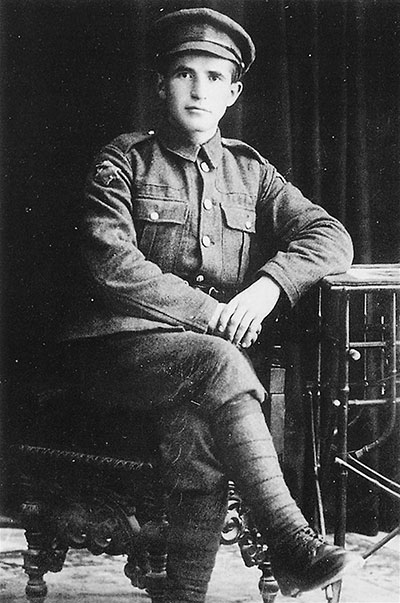
At the very beginning of his biography, when Segev describes the moment when the state’s independence was proclaimed, he quotes some of Ben-Gurion’s most bitter critics, including the Hebrew University scientist and religious philosopher Isaiah Leibowitz, who years later called Ben-Gurion “the biggest catastrophe that ever happened to the Jewish people and the State of Israel.” Leibowitz said this in reaction to the storm that followed the publication of the volume of the Hebrew Encyclopedia with his entry on Ben-Gurion. Segev chooses not to quote any of Leibowitz’s critics, including the noted historian Jacob Talmon, who considered it scandalous that Leibowitz, who was the encyclopedia’s editor, took it upon himself to write Ben-Gurion’s entry, despite their well-known enmity. In the same introduction, Segev quotes the disparaging words of Golda Meir, uttered in the course of a bitter dispute with Ben-Gurion, along with those of other political opponents. He certainly doesn’t quote the great labor Zionist leader Berl Katznelson’s remark that Ben-Gurion was “history’s gift to the Jewish people.”
Ben-Gurion’s plebeian origins and his unpolished manners earned the mockery of more urbane leaders like Chaim Weizmann and Moshe Sharett, but he never altered his ways. His common touches, which found expression in countless unrestricted meetings with ordinary Israelis or in the times when he stood on his head on the beach in Herzliya, are presented by Segev with a dollop of ridicule and are even held up as manifestations of his mental instability (another of Segev’s themes). In contrast, Uri Zvi Greenberg, the right-wing poet, praised Ben-Gurion’s authenticity, which remained unchanged from the 1920s onward. Many Israeli citizens felt the same way.
Ben-Gurion was, indeed, given to “volcanic eruptions,” as I called them in my short biography of the man. Segev, for his part, regards these outbursts as signs of mental instability. From everything that can be learned from his own words and the testimony of his contemporaries and associates, the book’s insinuations that Ben-Gurion had bipolar disorder seem to be unfounded. He had, to be sure, his periods of deep dread—but how could one be a Jew who felt responsibility for the fate of the nation, before and after the Holocaust, and not have felt that way?
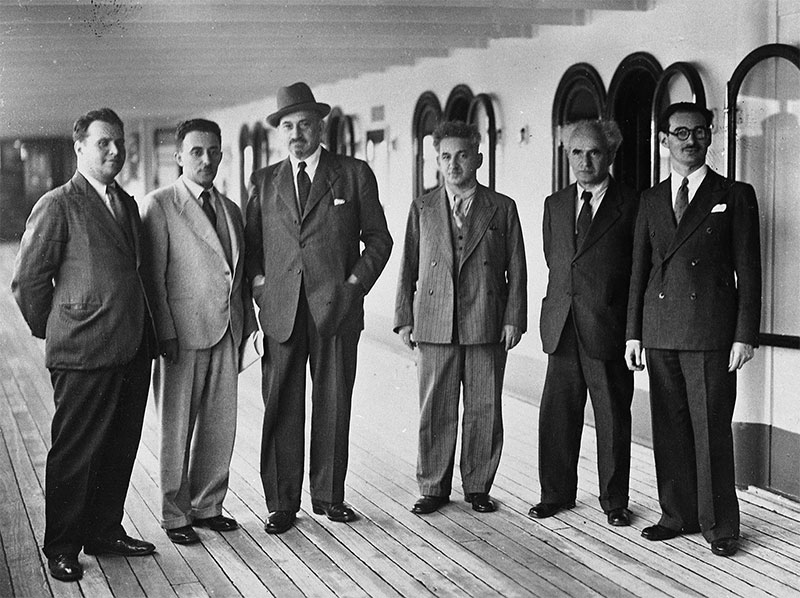
Ben-Gurion’s dread in the years before World War II mostly revolved around the fate of the Zionist project amidst the upheavals of British and world politics. He did not become intoxicated with Israel’s military victories after the War of Independence and continued to seek an alliance with a major power. To his great disappointment, the United States refused to fill this role in the 1950s and early 1960s, and France did so only incompletely. These fears were not psychotic but the rational apprehensions of the head of a small and weak state whose fate hung in the balance.
Ben-Gurion recognized that Israel’s victory in 1948 was due more to the Arabs’ weakness than the strength of the Jews. He therefore feared Gamal Abdel Nasser, the president of Egypt, who had worked to build a network of alliances he had formed with Arab states. The growth of Arab nationalism, aided by the Soviets, was another persistent worry. For these reasons, he was also prepared to confront the United States over the Israeli nuclear project in Dimona.
Ben-Gurion was a great politician who did not really understand people. Segev rightly notes his 1953 appointments of Pinchas Lavon to be defense minister, Moshe Dayan to be the army’s chief of staff, and Moshe Sharett to be prime minister created an unstable combination. When he relinquished the prime ministership and left for his kibbutz in the Negev, the fledgling country was led by the unfortunate combination of two strong and crafty men with a weak prime minister. Ben-Gurion had, in fact, worried that Sharett was too weak to take his place as prime minister, but he succumbed to the pressure of his Mapai comrades. The saga with Sharett would continue even after Ben-Gurion’s return to the leadership in 1955. Zipporah Sharett, Moshe’s wife, who thought that Ben-Gurion should never have come back, serves as one of Segev’s sources regarding Ben-Gurion’s mental instability. Segev doesn’t mention, however, the attitude of her brother, Shaul Avigur, who established the illegal immigration network in Europe after World War II and, later, a Zionist underground network in Soviet Russia. Avigur had prayed that Ben-Gurion would return to his former position.
One of the recurring themes of Segev’s book is Ben-Gurion’s lust for power. For instance, Segev claims that Weizmann’s attainment of the Balfour Declaration left a “sour” taste in Ben-Gurion’s mouth since he hadn’t been personally involved in the diplomacy leading up to it. Ben-Gurion was 31 at the time. At that stage in his career, the distance between his status and that of Weizmann was enormous, and the idea that someone in his obscure position would take part in high-level negotiations would never have occurred to him. Like every Zionist, he could argue that more should have been gotten from the British, but this wasn’t because he was left out of the picture; it was because it is the way of Jews to think that they would act more wisely than their leaders.
Segev suggests that Ben-Gurion’s proclamation of independence was “meant to rehabilitate” his “own prestige,” which had been damaged by recent military failures. But was Ben-Gurion’s ego really what pushed the dramatic decision to take an existential risk and invite war with the Arab states? Later, when Segev speaks of the authority that Ben-Gurion obtained for the civilian government over the use of force in 1948 (after the sinking of the Irgun ship the Altalena and the disbandment of the left-wing strike force, the Palmach), he adds that Ben-Gurion would now “control the army himself.” It’s as if the insistence on civilian control of the military had been merely a personal effort on the part of Ben-Gurion to shore up his own position.
Did he truly lack idealism and sincerity? Was he genuinely unable to cooperate with others? Ben-Gurion found himself alone in the leadership only after Berl Katznelson and Eliyahu Golomb died and Yitzhak Tabenkin broke with Mapai. For many long years, he shared power and accepted what was then called the “judgment of the movement.” How does the boundless ego of Ben-Gurion fit with his readiness to accept the authority of Katznelson? Or to return Weizmann in 1936 to the presidency of the World Zionist Organization when he himself was already head of the Jewish Agency Executive and knew in advance that Weizmann would challenge his leadership? And how does one explain his failed attempt in 1935 to reach a series of agreements with Jabotinsky, another man with an outsized ego, at the price of concessions that made him very unpopular with his base in the labor movement?
Two subjects form the central axis of Segev’s book: the Holocaust and the Nakba (the Arabic word for catastrophe and the Palestinian designation of the founding of the State of Israel and the consequent flight or expulsion of Arab inhabitants). Segev recognizes Ben-Gurion’s feelings of total despair in the face of the European disaster that he could do nothing to prevent or to stop. Only the defeat of Hitler could save Jewish lives. But this does not prevent Segev from blaming Ben-Gurion for not taking more seriously German offers to stop the killing in return for ransom. Segev’s main argument revolves around the fact that Ben-Gurion was unwilling to operate behind the backs of the British. But was there any prospect of working beyond the ken of the authorities in wartime? Didn’t one need British approval even to dispatch a telegram from Palestine? A plan that would require the transfer of large sums of money had no chance of success in the face of the opposition of the Allied powers.
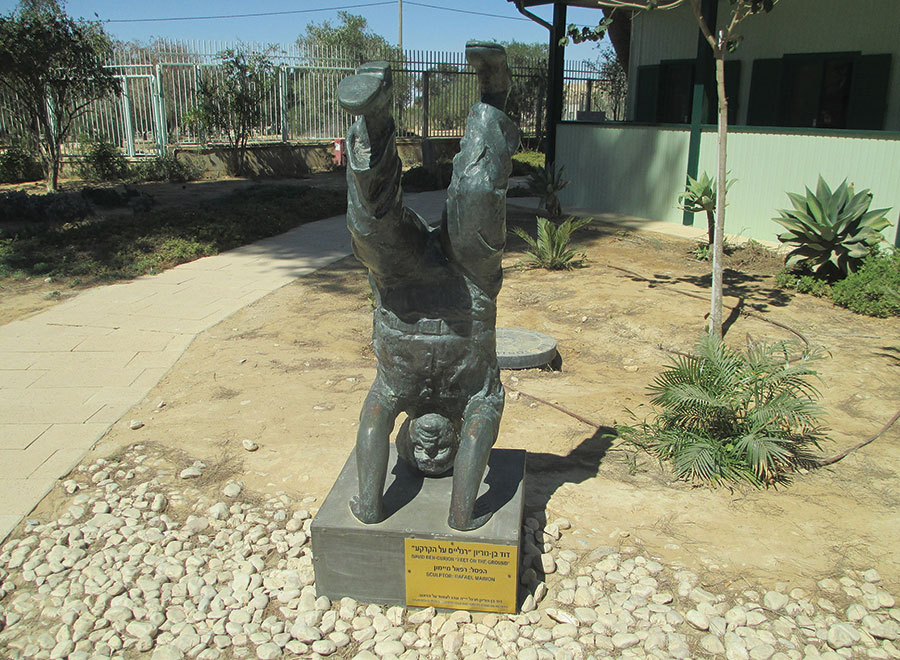
When Ben-Gurion spoke out, accusing the world of indifference to the spilling of Jewish blood, Segev claims that the accusation was not directed against the silence of the free world but was merely a campaign speech for the Histadrut elections. Isn’t it more likely that Ben-Gurion spoke from the depths of his suffering and expressed the pain of the audience he was addressing? Segev notes that the free world did not stand idly by when Jews were being slaughtered but fought against the Nazis. The truth is, however, that the problem of the Jews—the “poor relatives”—did not interest a world that was busy with war.
The subject of the Nakba is a leitmotif throughout Segev’s book, and it leads him to arrive at far-reaching conclusions based on rather slender testimony. He relates, for instance, that, after the slaughter of Jewish workers at the oil refineries in Haifa by Arabs in 1947, there was a decision to take retaliatory action against the village from which the murderers had come, Balad al-Sheikh. Ben-Gurion supported the action on the grounds that Haifa was a Hebrew city, and what had happened in Hebron in 1929 could not be allowed to occur there. “He thus associated himself,” says Segev, “with the expulsion and flight of the Arab population.” But the linkage between Ben-Gurion’s utterance and the Nakba is an overstatement, to say the least. Segev presents Plan D, the Haganah’s program for taking control of the territories assigned to the Jewish state, which he outlines in detail, as a programmatic expulsion. In fact, it drew a distinction between Arab villages that rose in violent opposition to the Jewish state and those that accepted Israeli rule and were allowed to remain in place. It did not include any call for general expulsion.
Shortly before Israel declared independence, there was an American proposal of a three-month cease-fire along with the postponement of the establishment of a Jewish state. Ben-Gurion rejected it, Segev says, because hundreds of thousands of Arabs were still in their villages, and those who had fled would be able to return. “Ben-Gurion thus opposed the cease-fire and insisted on declaring independence immediately, despite the expected cost in human life.”
The idea that the declaration of independence on May 14, 1948, was a means of expelling hundreds of thousands of Arabs even if it entailed the sacrifice of Jewish lives is an extraordinary piece of historical analysis that I have never encountered before. Thus does a singular historical event become nothing but another detail in the unfolding story of the Nakba. Considerations like the political vacuum that was created by the British departure, the readiness to undertake the risk of war against Arab regular armies at a time when the Jewish commanders thought there was only a 50 percent chance of success—all of this was of no consequence compared to the desire to promote the departure of the Arabs? Were there really no other political considerations, no awareness of the possibility of a historical breakthrough?
The only instance in which it is
actually possible to link Ben-Gurion directly to a policy of expulsion is in
the case of Lydda and Ramle. In fact, Segev has trouble explaining why Yigal
Allon and Yitzhak Rabin had to ask Ben-Gurion whether to expel the residents
since, by his account, Plan D already permitted them to do so. Segev therefore
chooses to recount how several days earlier the chief of staff issued an
unequivocal directive against the expulsion of inhabitants and the destruction
of cities or villages at any time other than in the course of battle. It seems
that some individual commanders were issuing expulsion orders on their own
initiative and had to be stopped. The chief of staff’s directive was fully in
accord with Plan D. In fact, the need to receive Ben-Gurion’s
permission to expel the inhabitants of the two Arab cities in the center of the
country proves that there was no sweeping order of expulsion.
Segev writes of Ben-Gurion that the Nakba “haunted him until the end of his life.” I’m not so sure. The sight of the abandoned cities certainly evoked his pity, but from the very first moment, it was clear that the refugees would not be allowed to return. This was three years after the end of World War II. About eight million Germans had been expelled from East Prussia and hundreds of thousands of Poles from Volhynia and Galicia. The democratic Czechoslovakian parliament expelled three million Germans from the Sudetenland not in the course of the war but after Germany’s surrender. At the same time, the extraordinarily bloody process of partition was taking place in India. In Palestine, expulsions took place on both sides; in the area ruled by Arabs, not a single Jew remained. Some 70,000 Jews became refugees during the time of the fighting. Some returned to their homes; others were resettled. At that historical moment, these reciprocal developments in Palestine did not seem out of the ordinary.
What was extraordinary was the fact that, of all the millions of refugees in that era, the only problem that remained an incurable wound was that of the Palestinian refugees. Segev’s explanation? Because the Land of Israel is the Holy Land, and the attention of millions is focused on it. Maybe.
And maybe one of the reasons for it is the fact that the Arab states did not absorb the refugees and didn’t resettle them. Or maybe the fact that the Jews won the war and expanded the partition borders, exacerbating this refugee problem, was unforgivable since what is permissible to other peoples is not necessarily permissible to the Jews.
In the 1948 article from Time magazinewith which I began this review, one reads that “[i]t was a bad joke, and also a sober observation, that the idea of Drang nach Osten lived in the new nation of Hitler’s victims.” Even at this early date, Time found it necessary to predict that “[t]his could become an ugly little Spartan state.” The American magazine of record did not see the Jews’ victory and the expulsion of Arabs as part and parcel of the political processes that were then taking place throughout the world. Ben-Gurion understood this attitude and therefore rejected his generals’ proposal to conquer the West Bank in the spring of 1949, when the IDF was at the height of its strength. He felt that the world would never rest content with the Jews’ conquest of the entire Holy Land and maintained that Israel had enough land but needed more Jews.
After he has reported all of Ben-Gurion’s disgraceful deeds (political and domestic) and described the man’s supposed instability (intellectual and psychological), Segev suddenly sees fit to give the reader a short but impressive list of Ben-Gurion’s achievements during his years as prime minister. It seems like an afterthought, an attempt to ward off the accusation that he didn’t write about these things.
Once, after a lecture that I gave on Ben-Gurion in Warsaw, I was asked a challenging question: “You put Ben-Gurion in the same category as Churchill and de Gaulle, strong leaders of democratic states. Wouldn’t it have been more accurate to compare him with authoritarian leaders like Ataturk?” My answer was that one must judge a political leader in terms of the state he or she leaves behind. Turkey has never known a day of democratic government, while Israel, for all its faults, is a democratic state. We owe this fact, without any doubt, to David Ben-Gurion.
The August 16, 1948, Time cover story ended:
In their long and brilliant history, the Jews have displayed great genius for religion, ethics, husbandry, commerce, literature, music and art. The one skill they have never shown as a people is a talent for politics. That is the talent they need now. Perhaps the Israeli has it.
Perhaps.
Suggested Reading
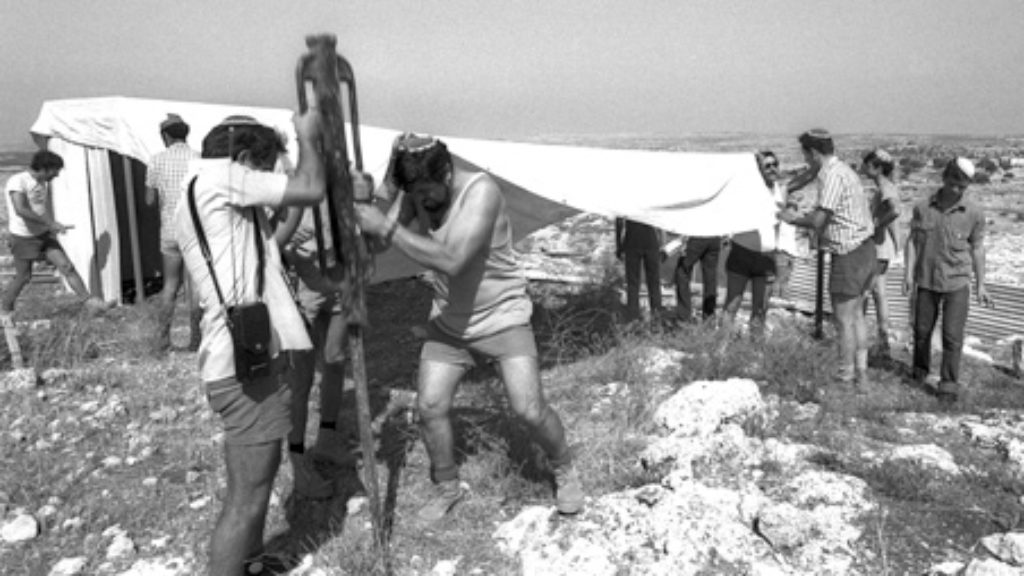
Adventure Story
Anita Shapira's new book raises the bar for short histories of Israel.
The Kibbutz and the State
How the position of the kibbutz in Israeli society has changed, and why.
On the Importance of Booing Mayne Yiddishe Mame
How did Zionist elites create a new national identity for rank and file members whose ideals did not match their own?
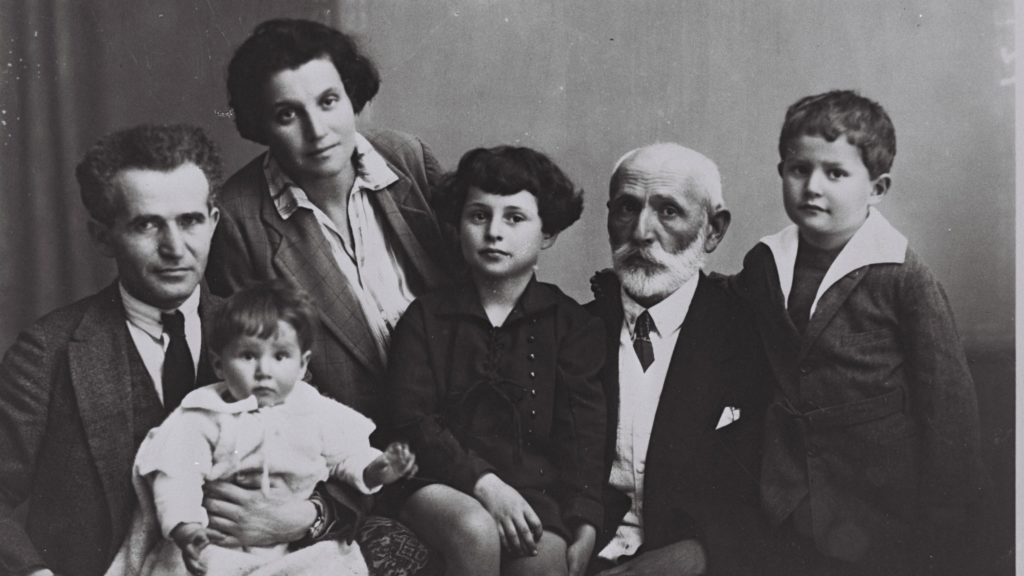
The Statesman
Israel's president writes a biography of that country's first prime minister.
Comments
You must log in to comment Log In